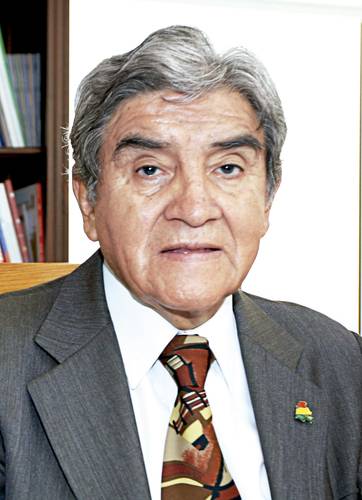The Ortega regime put into effect five reforms in the administrative structures of the same number of public entities, approved in a cascade by its deputies and collaborator allies in the National Assembly, according to previous publication in La Gaceta, official newspaper of the State.
The reformed institutions were the Nicaraguan Institute of Municipal Development (Inifom), Nicaraguan Institute of Culture (INC), National Corporations of the Public Sector (Cornap), Nicaraguan Institute of Fisheries and Aquaculture (Inpesca) and the National Electricity Transmission Company (Enatrel).
Of all these institutions, the only one that previously experienced modifications in its organization chart is Enatrel, after the sanctions of the United States Department of the Treasury to its owner, Salvador Mansell Castrillo in November 2021.
The Government ordered an emergency to remove Mansell Castrillo as president of Enatrel-they keep him as head of Energy and Mines-and hand over the position to Estela María Martínez Cerrato, who is also deputy minister of energy and mines.
The reforms vary depending on the administrative organization chart of each entity, but in summary they establish that all these institutions will be directed either by their board of directors or board of directors, while the holders of these portfolios will be in charge of merely administrative matters.
These amendments were approved expeditiously in the National Assembly during the session of January 20, after being sent by the Presidency as a matter of urgency.
The changes ordered in Inifom, INC, Cornap, Inpesca and Enatrel
In the case of Inifom, it is established that “Inifom’s management will be in charge of a board of directors and two co-directors, appointed by the President of the Republic, who will be advised by a technical committee. The board of directors is the highest decision-making body of Inifom’s rules and policies”, cites the reform published in La Gaceta.
In the case of Inpesca, “it will be directed by a Board of Directors and its administration will correspond to the general director or general director, assisted by the other Inpesca officials.”
The management of the Nicaraguan Institute of Culture in accordance with the reform will have as management and administration bodies the board of directors and two co-directors. “The board of directors will be the highest management and administrative body of the institute and will be made up of five members appointed by the president of the Republic. Within the members will be the two co-directors or co-directors ”, adds the reform.
The reform in the Cornap establishes that the “management of the Corporation will be in charge of a council or board of directors that will be the highest authority of the Corporation and its companies. The council will have the representation of the Corporation with powers of a general datario and will be composed of a minimum of five members. In addition, a general meeting is established, made up of three members appointed by the President of the Republic, who will hold the positions of “general director or director, deputy director or deputy director and general secretary or secretary”.
Finally, in the case of Enatrel It is established that the “management and administration bodies are the board of directors, the president and the executive vice president. Enatrel’s board of directors will be made up of no more than four members and no less than two members appointed by the President of the Republic. From among them, they will elect a president and a secretary, the rest of the members will occupy the position of vocal”.
Administrative control and the “twisted politics of gender”
The political analyst and former opposition deputy, Eliseo Núñez Morales, pointed out that from his point of view these changes are ordered directly by Rosario Murillo, in her role as administrator of the State and they obey the “twisted gender policy” undertaken by her and primarily, in maintaining absolute control over government policy decisions that emanate from these five instances.
“One thing is to empower women, with which we all have to agree, and another thing is to seize the institutions to set quotas with co-directors and co-directors, and divide power. This is even to the detriment of gender equity. If a woman has the capacity to be a director, then let her be, not having her accompanied by a man. In addition, this only serves to maintain control of the institution, because the decision will always come from whoever concentrates the power, in this case, Rosario Murillo,” said Núñez.
However, the analyst pointed out that there are cases in the midst of all these movements in which the diverse conveniences that Murillo would seek with these changes are evident, as is the case of Enatrel.
“There are cases of these institutions in which the figure of the general director prevails and they do not appeal to the co-directors, as is the case with Enatrel. There is a vote of confidence that they are giving to the CEO. They do not put a co-director because there is a political reason, “he explained.
“In the case of Inpesca, control has always been given to an ally of the indigenous ethnic groups. In the Cornap it is an institution in extinction period. But in Inifom the matter of the co-directors is striking, more because of the municipal issue that this institution looks at,” added Núñez.

















